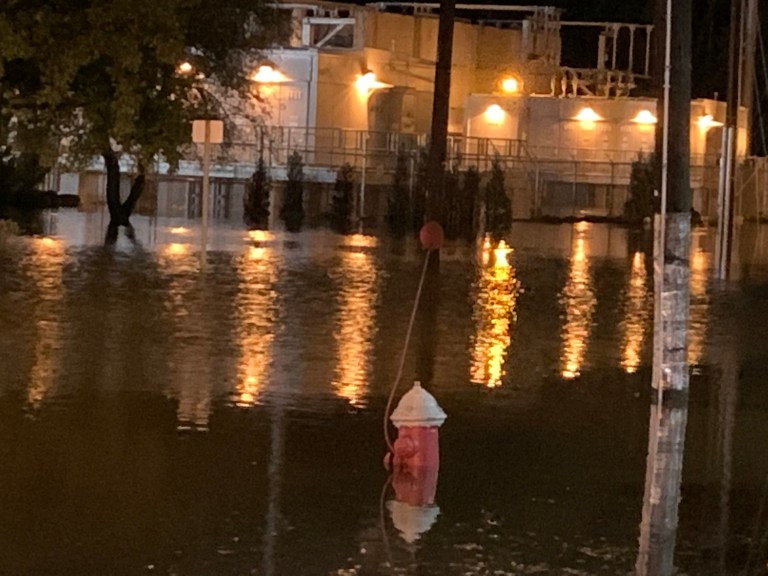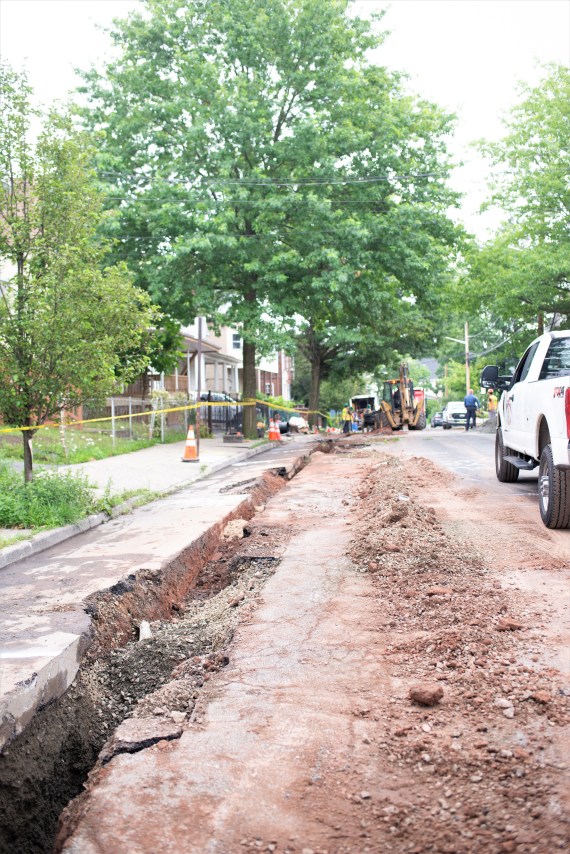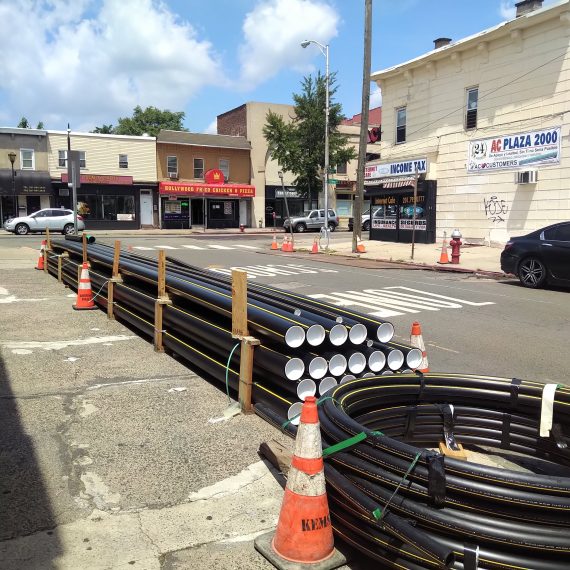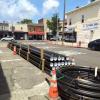SOURCE: Public Service Enterprise Group (PSEG)
DESCRIPTION:
The flooding caused by Tropical Depression Ida in early September 2021 was unique, even for PSE&G employees who have worked for decades and experienced devastation from hurricanes past like Floyd, Irene and Superstorm Sandy.
Due to the heavy rain in a condensed time, thousands of New Jersey homes in more than 70 communities experienced minor to severe flooding and related natural gas emergencies. Yet, even though gas services had to be shut off to many homes, some for several days, the situation would have been much worse had it not been for PSE&G’s Gas System Modernization Program.

Since 2014, PSE&G has been working to replace aging cast iron and unprotected steel pipes and related equipment with modern plastic to improve safety and prevent gas leaks. In areas where the modern equipment was installed before Ida recovery, shutting off gas for safety and then restoring it was much quicker and safer. The upgrades also meant we were able to maintain safe system pressure in many areas, so we did not have widespread customer outages in flooded areas.
While those customers who were flooded suffered hardships, in community after community customers took time to thank us as we went home to home to ensure people were safe and their gas services attended to as quickly as possible.
Planned upgrades are better than emergencies
Natural gas pipes run underground so most people don’t spend much time thinking about them, unless they smell a gas leak or until they hear that PSE&G crews may be coming to their neighborhood to excavate the streets and perform work. And then, customers are quick to think about traffic detours and other inconveniences generally associated with construction. Yet I like to convince people that planned work is always much better than emergency or unplanned work.
Just imagine, for a moment, how inconvenient it is to have a neighbor report a gas leak in the wee hours of the morning and all of a sudden fire, police and PSE&G crews are descending upon your block, setting up bright lights and noisy equipment and shutting off your gas for an unknown amount of time. Now just imagine if this happens over a holiday weekend or during a special occasion like a child’s birthday party.
To try to avoid such situations, we carefully plan upgrade projects throughout the state – focused first on aging pipes that are most in need of replacement. We work with municipal and county officials to coordinate projects, to lessen the amount of times the same road is dug up and, when possible, to save money on repaving.

We have an extensive customer outreach campaign that includes: emails and mailings, door hangers, social media posts, restoration post cards, calls, a dedicated project line for customers with questions to call, and ads with upcoming schedules in local TapInto websites. We also maintain an active schedule of ongoing gas construction at pseg.com/gaswork. Our Outreach team proactively communicates with our customers to ensure they are aware of what’s going on throughout all stages of a construction project, which allows customers to plan accordingly.
Benefits of infrastructure improvements
PSE&G launched the second phase of GSMP in January 2019. GSMP II represents a nearly $1.9 billion investment that will create roughly 3,200 jobs and will replace more than 875 miles of pipes along with other gas infrastructure improvements across the state. This is in addition to the 450 miles replaced in the first phase and more than 200 miles replaced under PSE&G’s Energy Strong program.
The work includes upgrades to high-pressure mains, which reduces the likelihood of water infiltration into the system – a great protection in the face of today’s severe storms.

The modern equipment that makes it easier for us to shut off gas and prevent emergencies also prevents methane from being released into the atmosphere. In fact, when the current phase of GSMP is complete, by 2023, we expect to achieve an approximate 22% reduction in methane emissions compared to 2018 levels.
The positive impacts of this critical infrastructure work are widespread. These upgrades will make New Jersey’s natural gas system safer, more reliable and will help reduce a significant source of methane emissions, which is good for the environment.
KEYWORDS: pseg, NYSE: PEG, natural gas, Tropical Depression Ida
![]()


